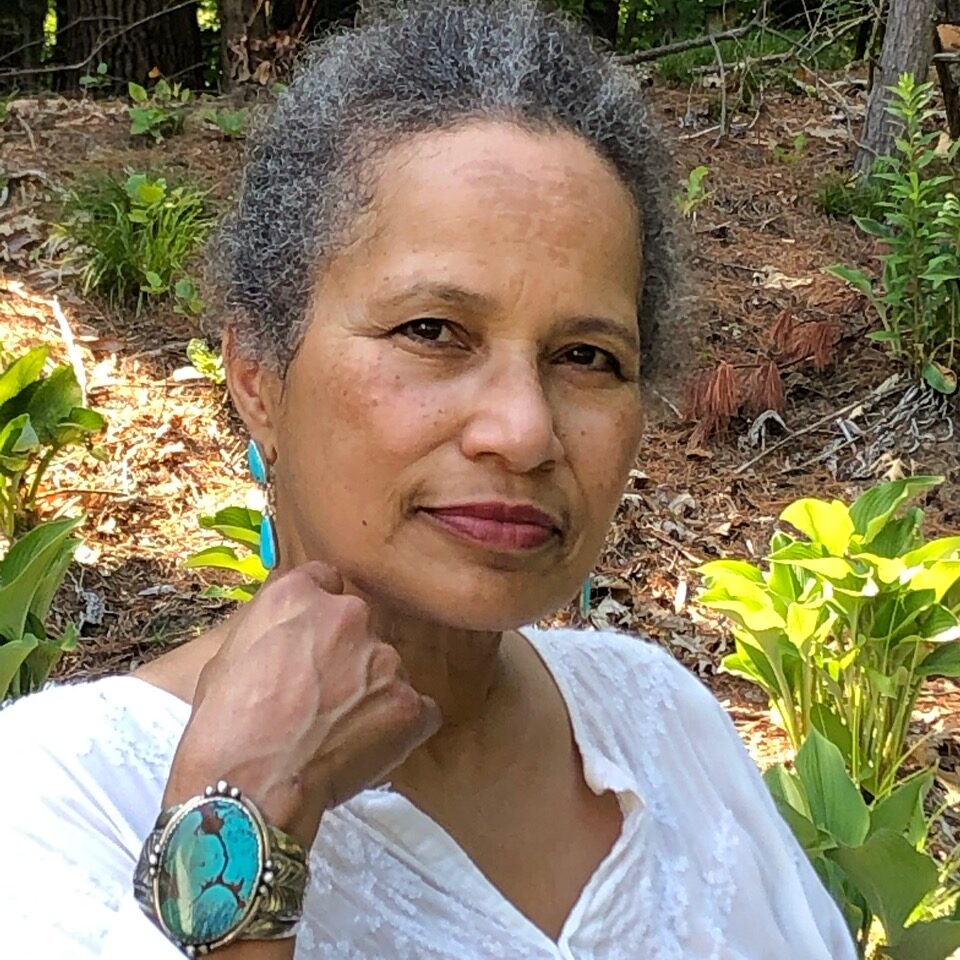Masterpiece in Progress

As a 2023 recipient of the prestigious Creative Capital Award, visionary artist Terry Jenoure is at work on “Secret to Life,” her multimedia performance integrating her figurative and abstract soft sculptures, written and improvised spoken word, free-jazz composed by Jenoure and played by an ensemble of women of elder color (WOC) among other elements. The breadth of this work in progress is just a glimpse of Jenoure’s creative range.
Secret to Life “unbinds and discloses” the secrets of women of color, inspired by Jenoure’s own familial story of racial passing. For the project, she’s interviewing women, then composing music and creating visual elements for videos which will tell their cathartic stories of reckoning.
In 1962 in Los Angeles, Malcolm X addressed a rapt crowd of Black Angelenos. Beyoncé’s visual album Lemonade contains the following quote from that incendiary speech:
“The most disrespected person in America is the Black woman.
The most unprotected person in America is the Black woman.
The most neglected person in America is the Black woman.”
Terry Jenoure “…rejects the notion that we are at the bottom. When society says we’re at the bottom, they’re only judging us by material means. We’re not at the bottom spiritually. We’re very high up, in fact. Otherwise, we wouldn’t be here today and still pushing forward. Society tells us we’re empty. Society tells everybody that. White people, too. The spiritual oppression of many whites is enormous, otherwise, why would so many people be so frightened and angry? But I reject the notion of emptiness. We’re full. All of us. We’ve just forgotten how to find what we need.”
We recently Zoomed with the artist at her home in Northhampton, Massachusetts.
Born in the Bronx into a Puerto Rican and Jamaican family, Jenoure trained as a classical violinist beginning in 5th grade, then added to her repertoire a self-taught guitarist and vocalist, and protégé of the Free Jazz Movement, music being but one of her modes of expression. “I’m addicted to experimentation,” she says. Just an aside: her self-taught soft sculptures may be viewed at the Smithsonian.
Holding Masters and Doctoral degrees in Education and a B.A. degree in Philosophy, she taught as part of the graduate faculty at Lesley University for 18 years, and as an independent researcher focusing on the creative development of teachers, community leaders, and social workers in South Africa, Mexico, Israel, and Colombia. She has been awarded grants from the National Endowment for the Arts (NEA), the New England Foundation for the Arts, the Barbara Deming Money for Women Fund, and was a consultant for the National Endowment for the Arts, the Lila Wallace Readers Digest Fund, the Ford Foundation, and the Connecticut Commission for Arts and Tourism. She also served as the Director of Augusta Savage Gallery at the University of Massachusetts Amherst for three decades.

Jenoure is nourished by her polyglot, polymath creative life, focusing on her love of storytelling “…as a non-linear way to enter into the depths of the emotional, psychic and spiritual” in what seems like every medium. She credits her family with giving her this courage.
“I have always needed many ways to express myself,” she says. “I was fortunate to have a family that gave me room for that.” Jenoure grew up hearing the folk music and protest songs of the 1960s, and in junior high decided that she wanted to learn to play the guitar. “My father had this old beat-up guitar, so he gave it to me, and I taught myself to play. I applaud my Dad who always said, If you see someone else doing something, that means it can be done, and that means that you can do it, too.”
Faith gives her an even deeper source of strength. She recounts her conversion experience in 1987: “I gave my life to Christ. I got saved. I experienced the gift of tongues. I don’t think a day goes by that I’m not in communication with God in a very direct way, and that is my weapon and my shield.” She and her husband pray together and lift others up in prayer. She also does yoga daily.
Jenoure says that she views the intersection of race, age, and gender — i.e., Black, past 50, and female — as simply one of many intersections which need to be crossed for deeper understanding and appreciation of one another, to uncover hidden possibilities. ”We are all oppressed in so many ways,” she says. “We don’t give each other enough space. We don’t wonder about each other enough. We need more room inside of ourselves to receive each other. That’s not only the work of artists. It’s the work that all people need to do.”
In this way, each of us shares in Jenoure’s unearthing of the “secret to life,” bringing our own secret and our own story out of hiding and up into the light.
Be the first to comment